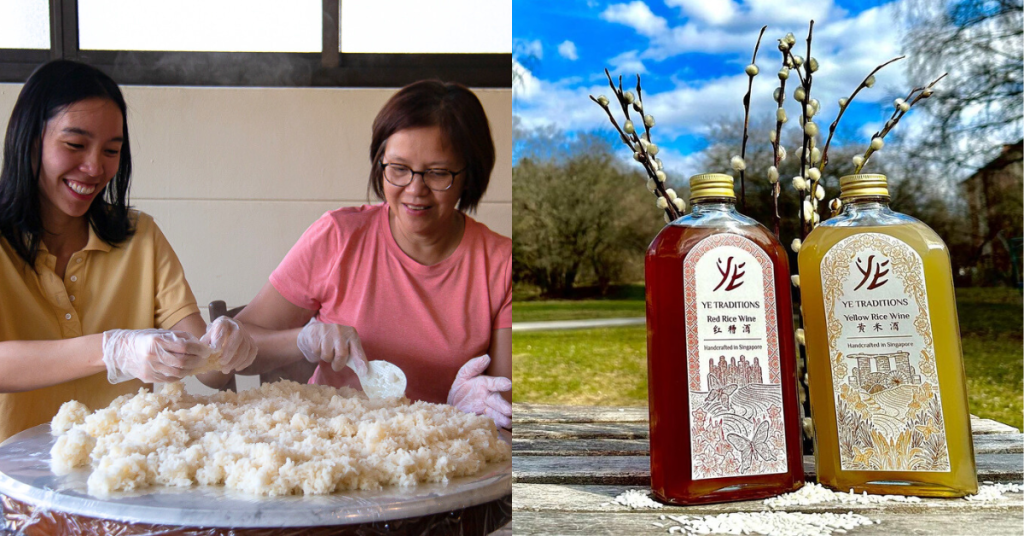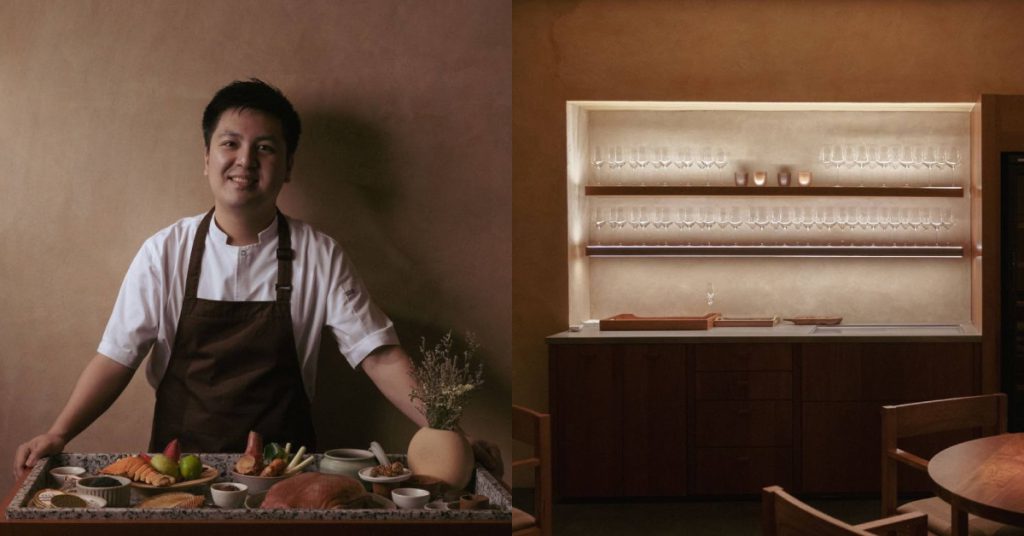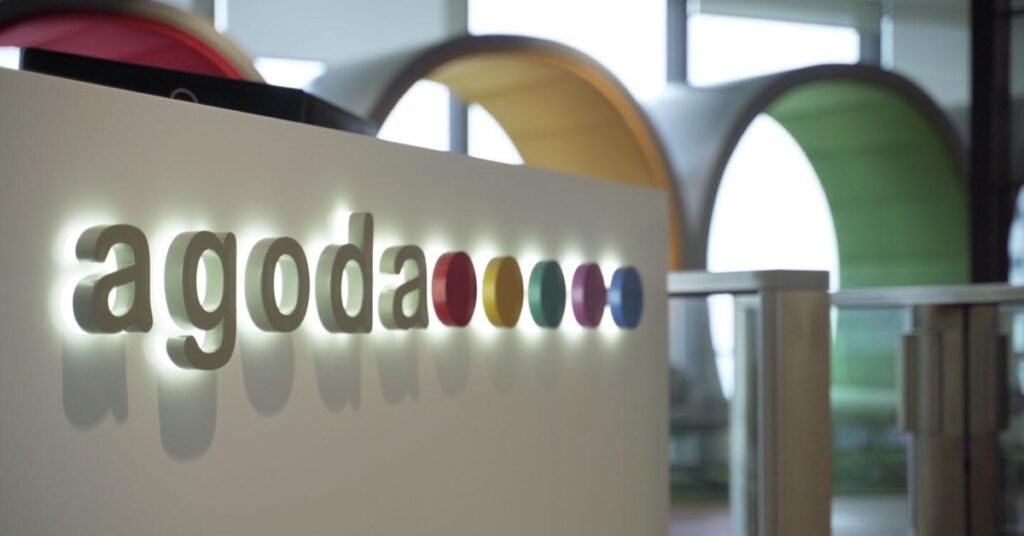“A ship in a harbour is safe but that is not what ships are built for.”
Largely attributed to the American author and businessman, John A. Shedd, this is a quote that Jinyen Yap holds dearly. And it was one of the main pushes that stopped her from joining another tech company after working for the likes of Grab and Bytedance.
Instead, she chose to grow Ye Traditions, her family’s then-new rice wine business that’s backed by traditional Chinese medicine (TCM).
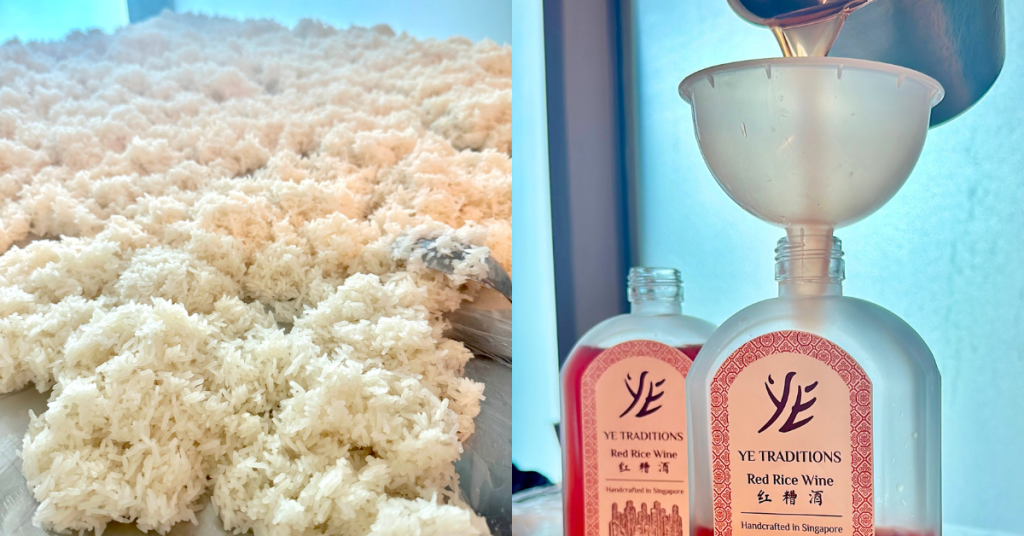
Now I know what you’re thinking, why would she do that? Tech companies are known for their fat pay cheques and, well, money’s not a bad thing to have in the current economic climate. But financial gain itself wasn’t enough.
During her stint at Grab and Bytedance, Jinyen would build products for millions of users. The continuous feedback and improvement process made those fulfilling careers. Then she went into the crypto industry and realised that this trendy job wasn’t cutting it.
The crypto industry is still niche and she missed seeing the product of her work being used by mainstream users. It was just happenstance that she had already set up Ye Traditions with her mum, Joo Eng Yap, not long ago.
So she decided to go all in and turn the rice wine business into her day job.
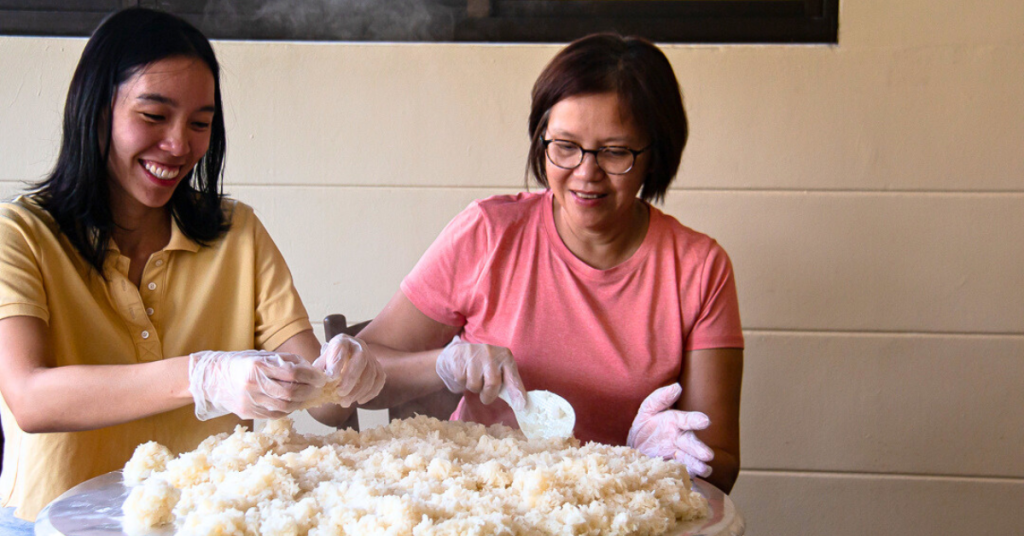
A heritage recipe in modern times
Ye Traditions took root during the pandemic and was launched in the most unlikely place—Carousell.
If you’ve not explored the internet much, Carousell is best known as an ecommerce platform for secondhand items. This could be shoes, clothes, cabinets, or even collectible figurines. Anything you can think of, someone’s probably selling it.
But perishable goods like rice wine aren’t exactly things you look for there, which might have helped the brand stand out.
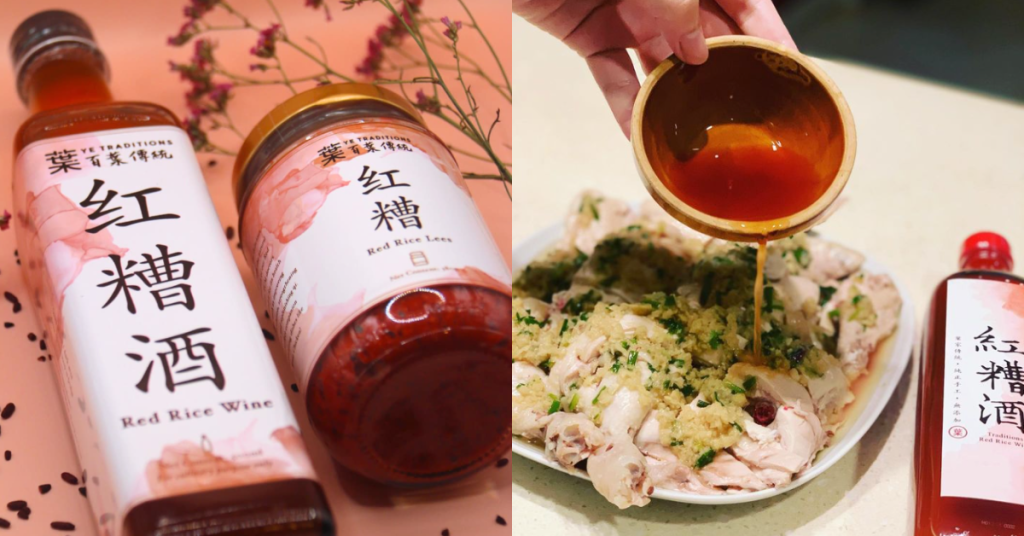
Speaking frankly, Jinyen shared that the mother-daughter duo just wanted to test out product-market fit. “Carousell is an easy, free, accessible way where we can reach a local engaged audience quickly without significant investment.”
“We didn’t really expect anything to come out of it,” she confided. However, this turned out to be a successful experiment as consumers began purchasing their rice wine. At one point, they’d constantly be sold out.
A large reason for this was due to the product itself. While Jinyen and Joo Eng didn’t have any entrepreneurial experience beforehand, they weren’t newbies in the rice wine scene.
“Brewing rice wine has always been a family event for our consumption, and we drink rice wine during celebratory festivals,” Jinyen explained. Their family’s recipe can even be traced all the way back to five generations.
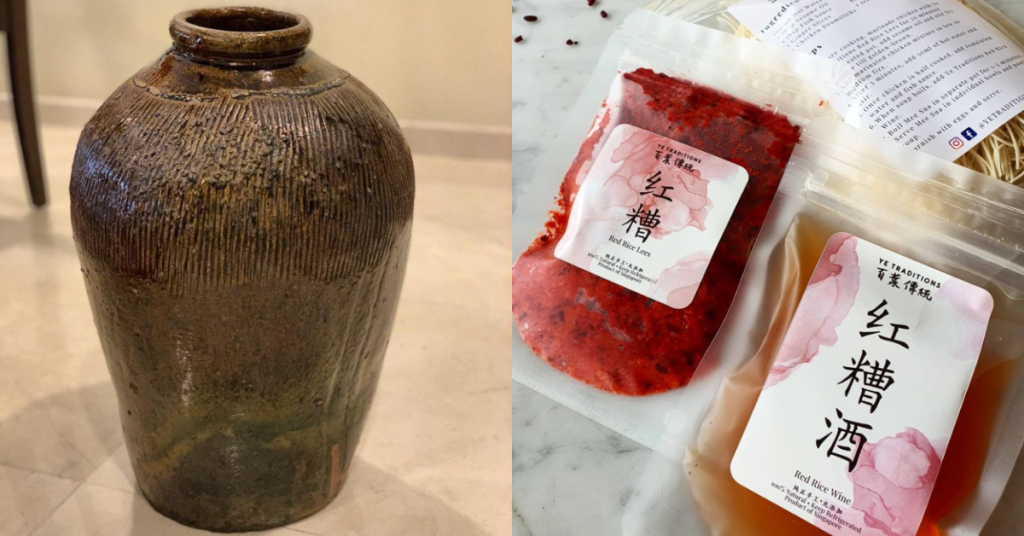
Brewing is both an art and a science
That said, it still took Jinyen and her mum six months of R&D to create Ye Traditions’ first viable product. They took the time to experiment with different methods to ensure consistency and quality.
The mother-daughter duo produce the rice wine themselves to maintain the traditional way of making them. Doing so adds another layer to the brand’s offering since they have a more hands-on approach compared to those made in factories.
Jinyen explained that mass produced rice wine brands typically have added salt and sugar in order to meet the requirements set by the Singapore Customs.
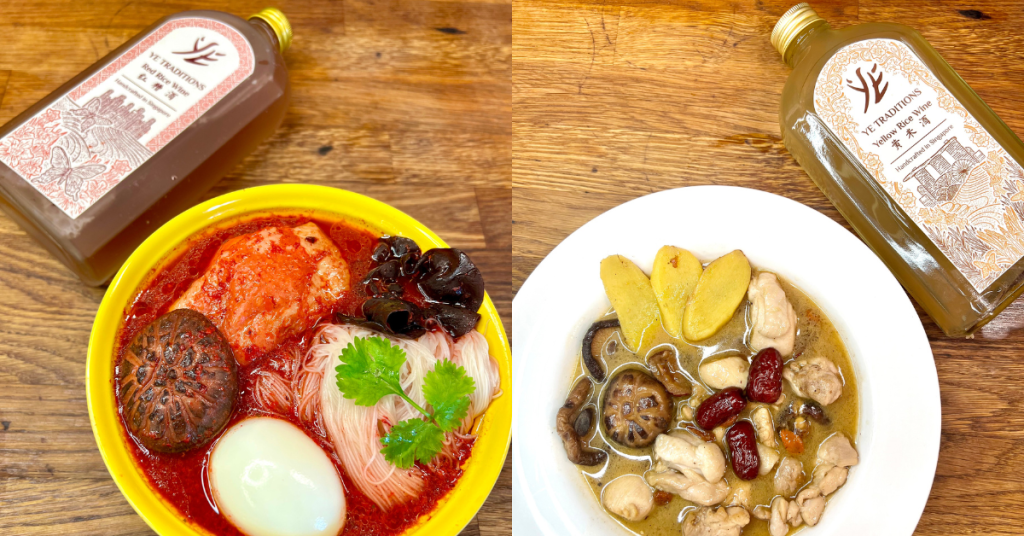
However, Ye Traditions prefers to keep theirs 100% naturally fermented without preservatives and additives. So they stopped selling for four months at one point to figure out the best way to get licensed without compromising on the health benefits.
The 31-year-old shared that their rice wines are being sold as culinary wines and the brand is licensed by the Singapore Food Authority.
“Fermenting rice wine is as much an art as a science. Even if everything is controlled, sometimes the end product can vary. And if it doesn’t meet our exacting standards, we will throw the entire batch away,” she said.
Each batch produces about 400 bottles of rice wine which means there’s a huge loss if the end result goes south.
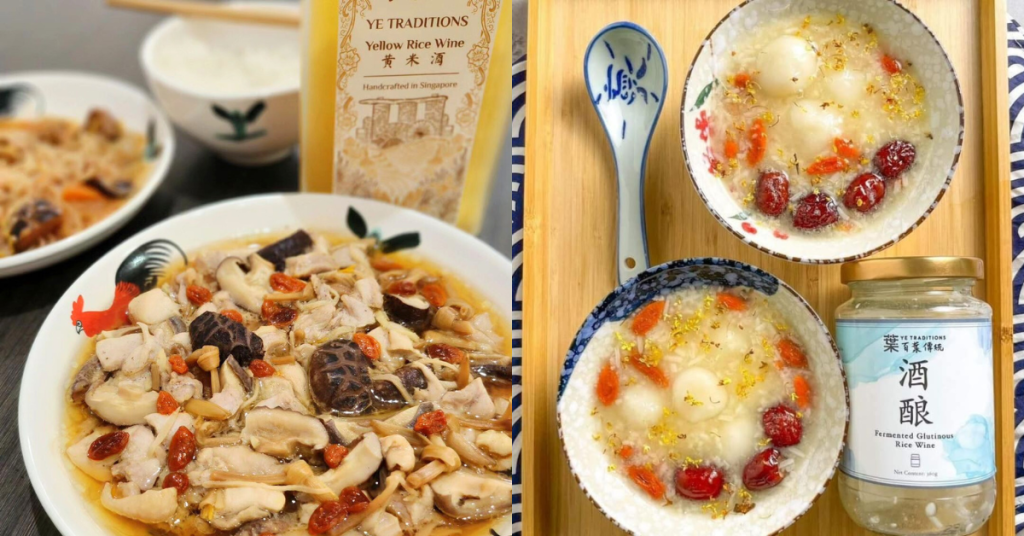
To be a staple in every household
So far, the brand sells around 500 bottles of rice wine every month.
Their most popular product remains the signature rice wines that come in a variety of flavours like Hakka yellow rice wine, Bentong ginger rice wine, and fermented glutinous rice wine. The price varies depending on flavour and starts from S$12.
The demand has also been increasing as the business’s catalogue grows. Just a few weeks ago, Ye Traditions opened the doors to its first physical store at Ang Mo Kio Street.
Expansion wasn’t really in their initial plans, but they kept having a backlog in orders. A home-based business wasn’t able to handle that sort of volume. It also helped that along the way, Enterprise Singapore invested north of five figures which accelerated the brand’s growth.
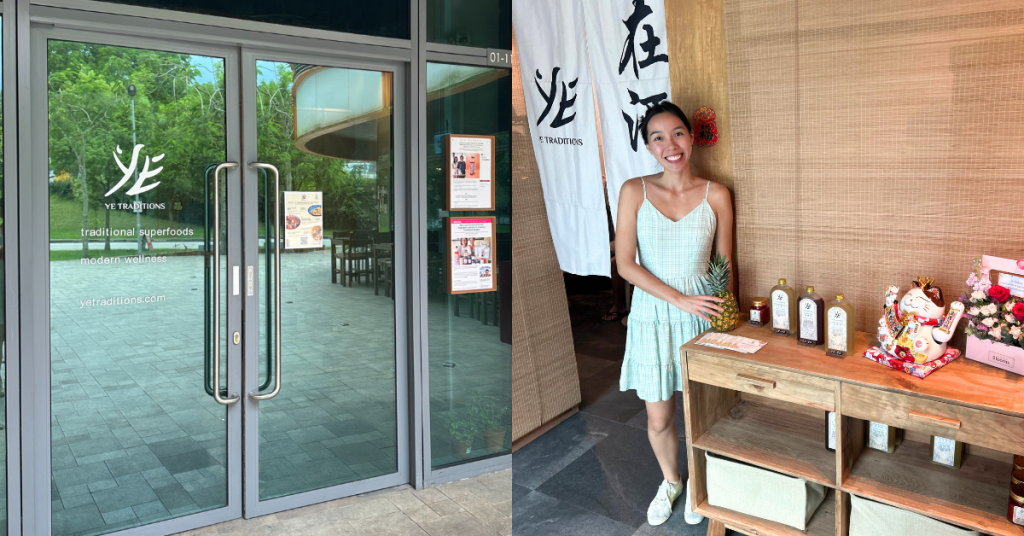
Having a full-fledged store has helped the business reach a wider audience, aided by the fact that customers can taste first before purchasing. But more than that, it’s provided the family a space to foster a community around Ye Traditions.
“What I loved the past few months since the shop opened was meeting some of our very first customers in person,” Jinyen gushed.
“We are so grateful that they have supported us from the very beginning and actually bought from us on Carousell when we didn’t even have a brand label. It makes us want to work even harder to create more TCM-backed heritage products for them.”
The mother-daughter duo have a bold goal of turning their brand into a staple found in every Asian household. To achieve this, they’ve set their eyes on solidifying their presence in the local market.
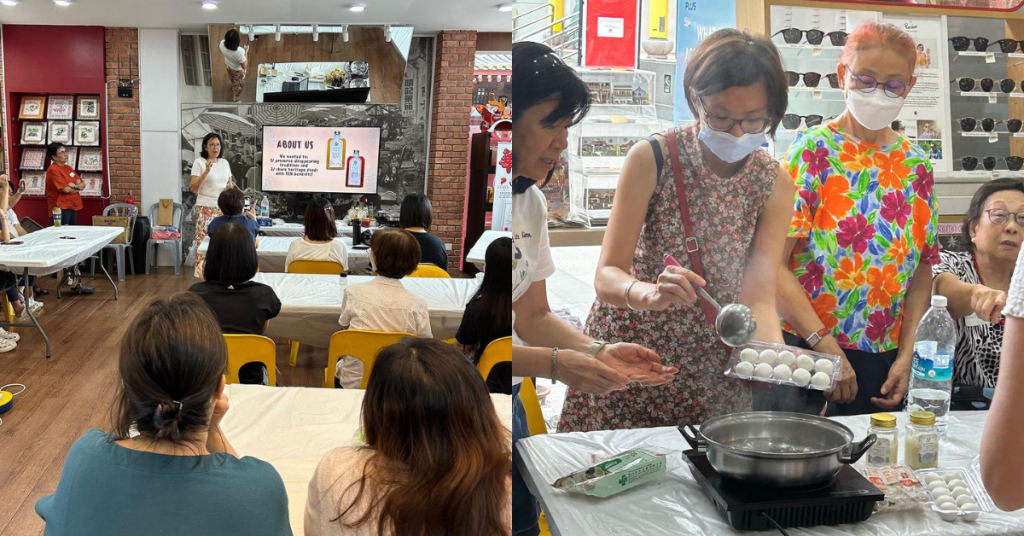
Also Read: What makes these Intel AI-powered PCs suitable for businesses looking to boost efficiency
Featured Image Credit: Ye Traditions


